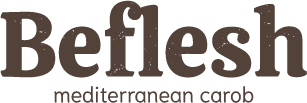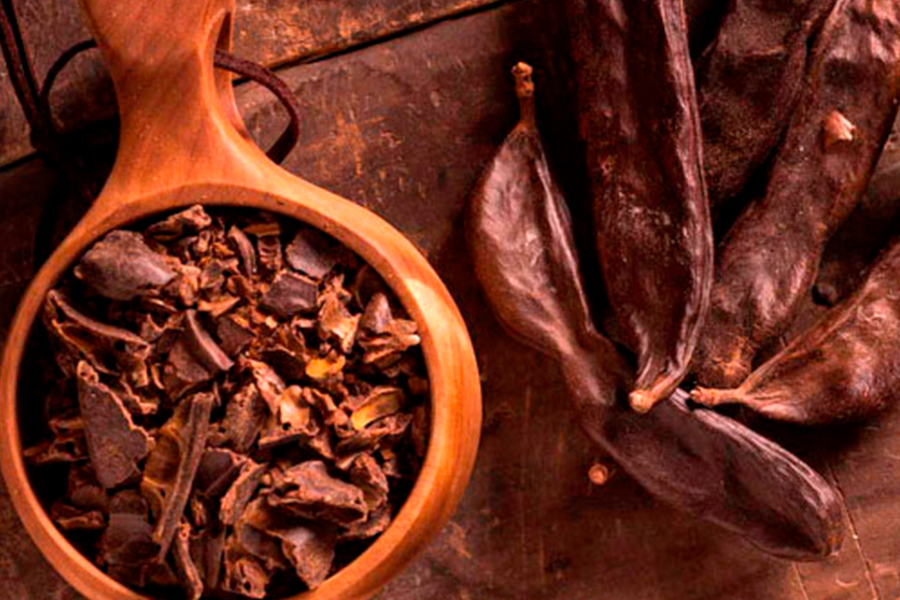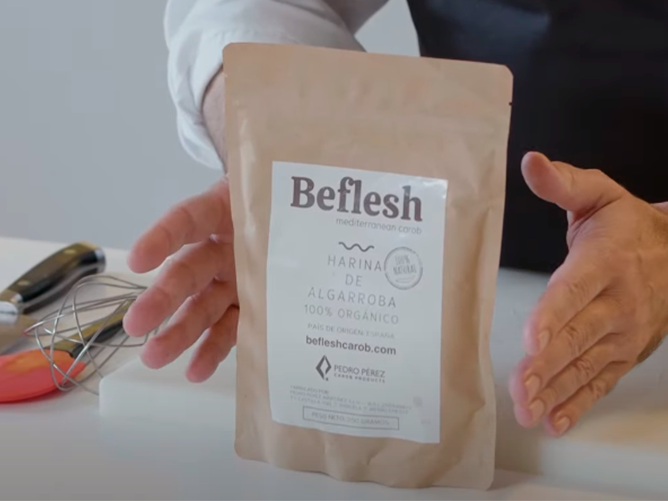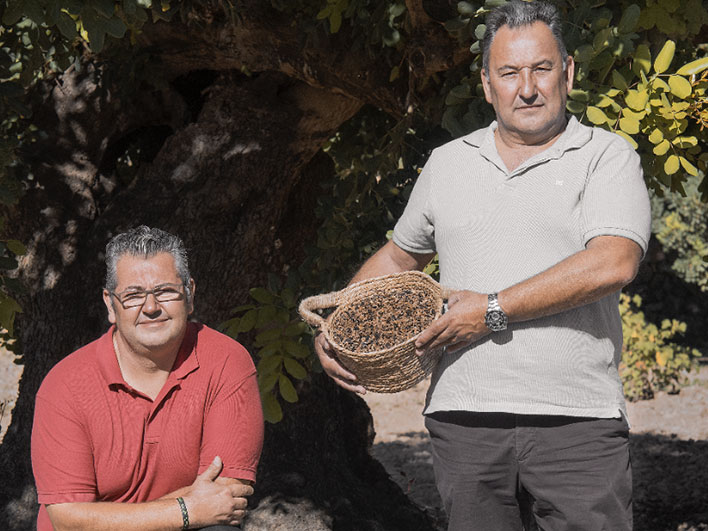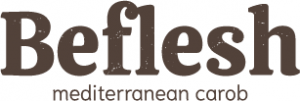Carob pulp is rich in dietary fibre and polyphenols which are very beneficial for human health. It is a source of natural bioactive compounds and for this reason its use is becoming very interesting as a raw material in the food industry.
It is considered as a “superfood” due to its nutrients and bioactive components, as well as to its beneficial healthy properties such as: antioxidant, energetic, anticarcinogenic, antidiabetic, antidiahorrea, antihyperlipidemia between others.
Carob pulp is consumed directly in animal feed, but must be previously processed if intended for human consumption. Carob pulp is milled into a fine powder to be used as a health-beneficial food ingredient.
Dehydrating or Roasting? What makes the difference?
The process used to produce carob powder involves 2 steps: 1) an initial thermal treatment to reduce the moisture of the fruit and stabilize its microbiological profile, and 2) a final grinding to reduce its particle size to micronized powder.
The temperature and duration at which the thermal treatment is carried out, will determine the type of carob powder produced and its content in bioactive compounds.
Dehydrated carob powder is produced using low temperatures (max. 100 ºC) and for a short period of time (3 minutes) in order to respect the all the original beneficial properties of the carob pulp.
Dehydrated carob is minimally processed and has a characteristic ‘light brown colour’ and a ‘natural sweet taste’ original of the carob fruit.
Roasted carob powder is processed at high temperatures (>200 ºC) and for a longer period of time (around 30 minutes). This roasting process has a negative effect in the product since the bioactive and nutritional properties of carob pulp are altered (the total phenolic content and the total antioxidant activity are reduced).
Roasted carob has a ‘dark brown colour’ and a ‘more bitter taste’, very similar to cocoa powder but different from dehydrated carob.
Beflesh vs roasted carob powder
Beflesh is ‘dehydrated’ carob powder with all the original properties of the carob fruit.
It is a superfood suitable for human consumption, with all the original bioactive compounds of carob pulp and an exclusive particle size which can be used as an ingredient in a wide range of food due to this property.
When compared to roasted carob; Beflesh has a higher content of B9 and D2 vitamin, and a lower content of oxalates and phytates, (anti-nutrients that reduce minerals absorption). Since it is dehydrated and not roasted, it is acrylamide free and has a higher antioxidation capacity.
Uses of Beflesh
Beflesh is a very energetic food rich in sugars but with a low glycemic index, which means that these sugars are absorbed slowly, releasing energy gradually and avoiding blood sugar level increase. It is rich in fibre, thus increasing satiety and providing minerals such as iron, calcium, magnesium, zinc, phosphorus, and specific vitamins of B and A.
It is fat free and does not contain gluten or lactose, at least in its natural form.
Beflesh can be used as an ingredient in a wide range of processed foods, especially cereal-based baked products. Its fine powder consistency makes it perfect to mix with other flours, because it adds sweetness.
Due to its unique composition, its incorporation in food products can increase significantly its content in dietary fibre and polyphenols, without adding fat.
Beflesh can be used as a healthy replacer of cocoa powder, having many nutritional advantages. Unlike cocoa, Beflesh contains no fat, is richer in dietary fibre and contains no stimulants like caffeine or theobromine.
